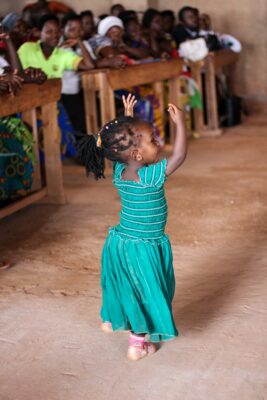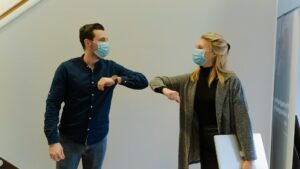When I speak or teach about my book Governance and Ministry, someone almost always says, “That’s all well and good for large congregations with a lot of staff. But we are small. Our board would love to delegate, but there is no one they can delegate to.”
 Dan Hotchkiss
Dan Hotchkiss
Know-how and Decide-what
It is a truth all but universally acknowledged—especially in small congregations—that whoever does the work should call the shots. Musicians are responsible for music, educators manage children’s programs, activists organize for social change. In the chancel, everyone defers to the altar guild. The underlying principle is clear: “Those with know-how should decide-how!”
But sometimes we go even further and let people who know how also decide what the congregation should be trying to accomplish. I want to propose an improved rule: “Those with know-how should decide-how, but everyone should have a voice when we decide-what.”
Reorganizing, Now That You’re Smaller

“We don’t have enough people to fill all of our positions.” I hear this complaint a lot, especially in congregations that are smaller than they used to be. Their official structure may call for a dozen or more boards and committees. Add it all up, and a congregation that sees 50 people on its pews feels obliged to fill up 60 or more seats around committee tables. Streamlining the official structure is a challenge, but with a clear plan and some determination, it can be done.
The End of the Race to Be Lax

The most lasting legacy of the Covid epidemic may not be the new ways people can show up, important as those are. The most lasting legacy may be new ways of thinking about when and whether to show up. For congregations, the era of attracting people by low expectations may have come to a belated end.
Craft and Creativity in Ministry

The world has changed—perhaps you’ve heard!—and congregations must adapt in order to thrive in the future. I agree, but want to add that adaptation requires creativity, and the seedbed of creativity is craft—attention to the basics handed down to us through time.
Preaching, teaching, pastoral care, administration—the craft of parish ministry covers a wide gamut. Few of us excel across the board; all of us depend on others to supply what we cannot. The craft of ministry is ancient, though the specifics vary across time, geography, and faith traditions. Craft is a way of doing things rooted in the past—but without craft, how can we tackle future opportunities? To flourish long-term, leaders need to walk the paradox of craft and creativity.
Covid Policy for the Long Run
For reasons too familiar to go into, leaders in the political and public health realms have become allergic to pandemic mandates. Rules became advice, advice became guidelines—leaving leaders of school districts, universities, and congregations to make decisions based on gut feelings and political alignments. Community leaders need a firmer way to ground their Covid policies in science.
The Board’s Job in Times of Rapid Change

Congregations currently face many choices: How and when will we begin to gather in person for worship and indoor activities? What kind of worship, education, and outreach makes sense, after all that young people and adults have been through? Which postponed projects should take priority in this time?
Governing boards know they should be giving leadership, but many don’t know how. Instead, they spend their time as they did before: listening to reports, delving into the details that interest them, rehashing conversations they and others have had before.



